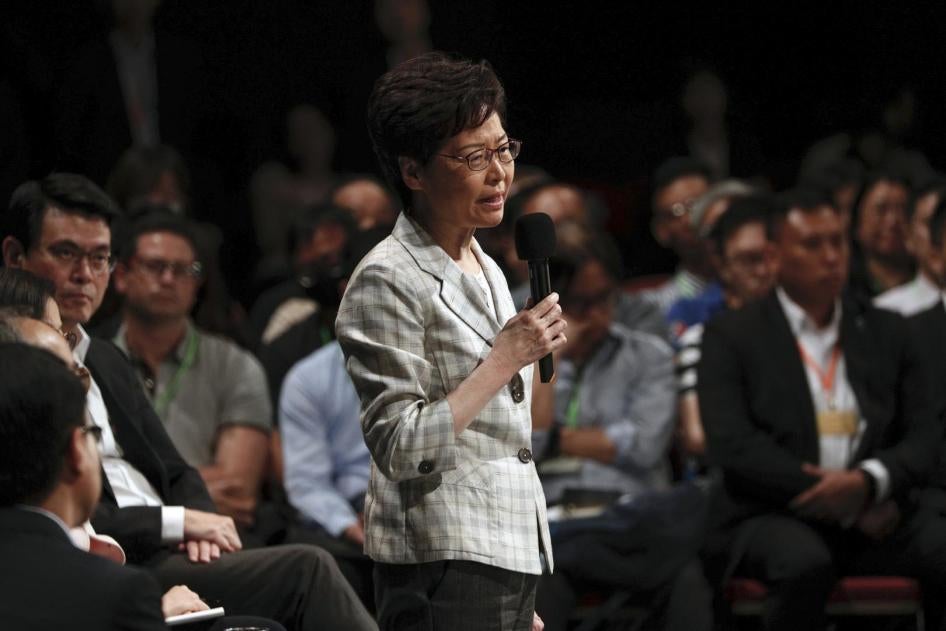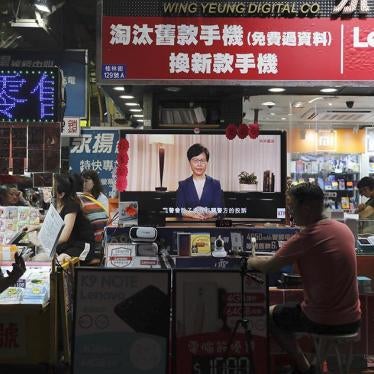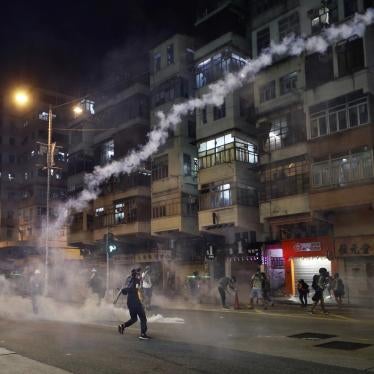Hong Kong’s Chief Executive Carrie Lam yesterday spent more than two hours facing angry questions and condemnations from people at a “community dialogue session,” organized after four months of massive street protests. This effort to show she really is in “listening mode,” as she claimed yesterday in a New York Times opinion piece, is perhaps an improvement on her recent practice of ignoring popular views, but it’s not clear if such sessions will lead to any change.
Since June, overwhelmingly peaceful protesters in Hong Kong, increasingly fearful of Chinese government encroachment on their human rights, have taken their long-simmering demands for accountability and universal suffrage onto the territory’s streets. But rather than find ways of engaging with the swelling ranks of protesters, Lam largely isolated herself. She has only given the occasional news conferences – some of them in the dead of night – at which she answered few questions, and she repeatedly rejected requests from pro-democracy lawmakers and activists to meet.
Last week Hong Kong authorities announced that Lam would attend the first community dialogue session, a move that seemed like just another attempt to get protesters off the streets before October 1, the 70th anniversary of Communist Party rule of China. Only 150 of 20,000 people who applied were allowed to attend, and only about 30 got the opportunity to speak. Lam again rejected calls for an independent investigation into excessive use of force by police and made no commitments to address any of the issues raised.
It’s hard to tell whether this exercise was actually Lam’s idea of “listening mode” or whether the event was simply dictated by Beijing. Either way, it was hardly what Hong Kong’s people have been calling for since the territory’s 1997 return to Chinese control, the pro-democracy protests in 2014, or the beginning of this summer. An extraordinary cross-section of Hong Kong people – students, civil servants, lawyers, young parents, older people – have come out onto the streets demanding accountability and their right to be part of the political process.
As public confidence in the Hong Kong government and police drop to new lows, limited dialogue without action makes Lam’s vision of “reconciliation” unlikely.








